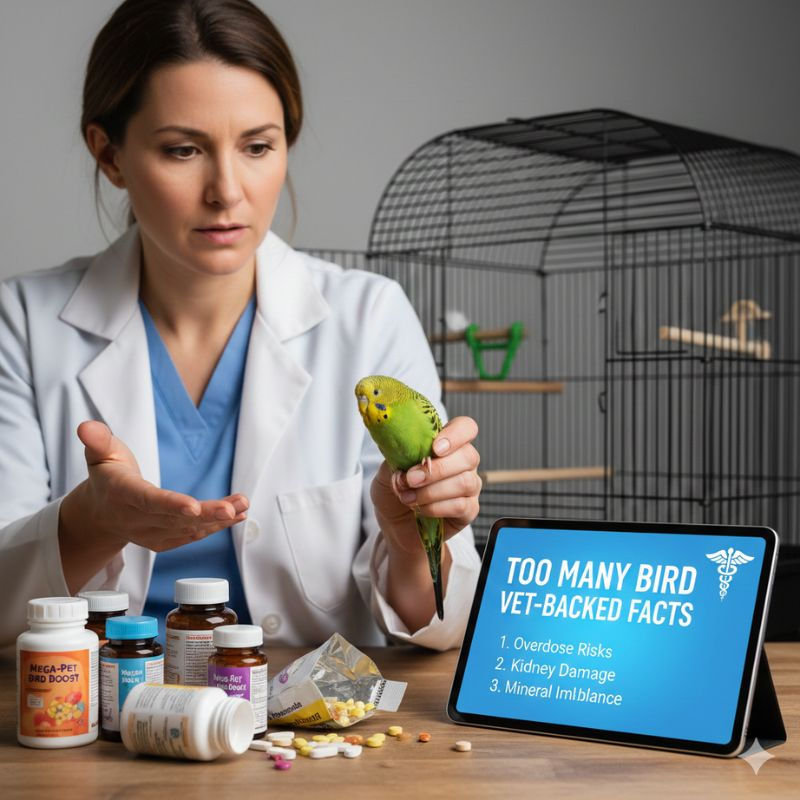Bird Cage Cleaner Safety Tips: What Every Bird Owner Should Know
- petperchlove
- May 19, 2025
- 4 min read

Keeping your bird’s environment clean is more than just a cosmetic choice—it’s a fundamental part of responsible pet ownership. Birds are delicate creatures with sensitive respiratory systems, making them especially vulnerable to harmful chemicals and unclean living spaces. That’s why using the right bird cage cleaner, in the right way, is crucial for your feathered friend’s health and well-being.
In this blog, we’ll walk you through essential bird cage cleaner safety tips, explain when to consider a bird cage cleaning service, and share expert-backed best practices. Whether you’re a new bird owner or a seasoned avian enthusiast, following these guidelines will help ensure your bird stays happy, healthy, and safe.
Why Safe Bird Cage Cleaning Matters
Birds spend most of their time in or around their cages, which means exposure to dirt, droppings, old food, and bacteria is constant. Without regular cleaning, these contaminants can build up, leading to:
Respiratory issues
Skin infections
Fungal or bacterial diseases
Odor problems
Using the right bird cage cleaner and applying it correctly can help prevent these issues and create a healthier habitat for your pet bird.
Avoid These Harmful Ingredients in Bird Cage Cleaners
Many standard household cleaners are unsafe for birds. Ingredients to avoid include:
Ammonia: Strong fumes that can cause respiratory distress
Bleach: Highly toxic and can lead to chemical burns or poisoning
Phenols: Found in some disinfectants and known to be dangerous to birds
Aerosol Sprays: Even "natural" sprays can harm birds due to their delivery method and airborne particles
Instead, look for bird cage cleaner products that are:
Non-toxic
Fragrance-free
Bird-safe certified
Easy to rinse
Brands like Kwik Pets offer a selection of bird-safe cleaning supplies formulated specifically with avian health in mind.
Step-by-Step Guide to Safe Bird Cage Cleaning
Here’s how to safely clean your bird’s cage without putting their health at risk:
1. Remove Your Bird from the Cage
Always relocate your bird to a safe, well-ventilated space while cleaning. This protects them from fumes and accidental exposure.
2. Take Apart the Cage
Detach toys, food dishes, perches, and trays to ensure a thorough cleaning.
3. Choose the Right Bird Cage Cleaner
Use a bird cage cleaner that is labeled as bird-safe or approved by avian veterinarians. Spray the surfaces lightly and allow the solution to sit for the recommended time to break down grime and bacteria.
4. Scrub Gently
Use a soft brush or cloth to scrub cage bars, trays, and accessories. Avoid abrasive tools that can damage surfaces or leave harmful residue.
5. Rinse and Dry Thoroughly
Even if your cleaner is labeled “no rinse,” it’s best to rinse all surfaces with clean water. Dry the cage completely before reintroducing your bird.
When to Hire a Bird Cage Cleaning Service
For bird owners with busy schedules, mobility challenges, or large aviaries, a professional bird cage cleaning service can be a lifesaver. These services use bird-safe products and have experience handling different types of cages, minimizing stress for you and your bird.
Choosing a trusted provider like those recommended by Kwik Pets ensures your pet’s environment is maintained to the highest standards.
How Often Should You Clean a Bird Cage?
Cleaning frequency depends on your bird species and cage size, but here’s a general schedule:
Task | Frequency |
Spot clean droppings | Daily |
Replace cage liner | Daily |
Clean food/water bowls | Daily |
Wipe perches & bars | Weekly |
Deep clean cage | Bi-weekly to monthly |
Keeping this routine not only ensures cleanliness but also reduces the risk of disease and odor.
Recommended Bird Cage Cleaning Products
Here are a few essentials bird owners trust:
Kwik Pets Bird-Safe Cage Cleaner – Non-toxic and effective
Natural Enzyme-Based Cleaners – Breaks down organic material safely
Vinegar & Water Mix – A safe DIY option (1:1 ratio) for light cleaning
Always test a small area first, and never mix cleaning agents unless instructed by the manufacturer.
Additional Safety Tips
Ventilate the Area: Open windows or use fans during cleaning.
Avoid Cleaning Around Birds: Even safe cleaners can irritate if sprayed too close.
Disinfect Toys Separately: Toys and accessories should be soaked, rinsed, and fully dried before reintroduction.
Store Products Safely: Keep all cleaners out of reach from birds and children.
Final Thoughts
Birds thrive in a clean, toxin-free environment. Taking the time to learn proper bird cage cleaner practices and being cautious with product choices can make all the difference in your bird’s long-term health.
Whether you're doing it yourself or hiring a bird cage cleaning service, always choose quality and safety first. Trusted suppliers like Kwik Pets can provide reliable, bird-friendly cleaning solutions to support your pet’s wellness every day.
Frequently Asked Questions (FAQs)
1. Can I use vinegar to clean my bird’s cage?
Yes, a diluted vinegar solution (equal parts white vinegar and water) is a safe and natural way to clean bird cages. Just be sure to rinse thoroughly and dry the cage before placing your bird back inside.
2. How often should I deep clean my bird’s cage?
Deep cleaning should be done every two weeks to once a month, depending on cage size and the number of birds you have.
3. Is it okay to use baby wipes or disinfectant wipes on the cage?
Most commercial wipes contain fragrances and chemicals that can be harmful to birds. Only use wipes that are specifically labeled as bird-safe.
4. Are professional bird cage cleaning services expensive?
Costs vary by region and cage size, but many owners find them cost-effective for the convenience and thoroughness they offer. Look for trusted names or partners like Kwik Pets to ensure quality service.
5. What should I do if my bird was exposed to a toxic cleaner?
Immediately remove the bird from the area, ensure proper ventilation, and contact an avian veterinarian as soon as possible.



Comments